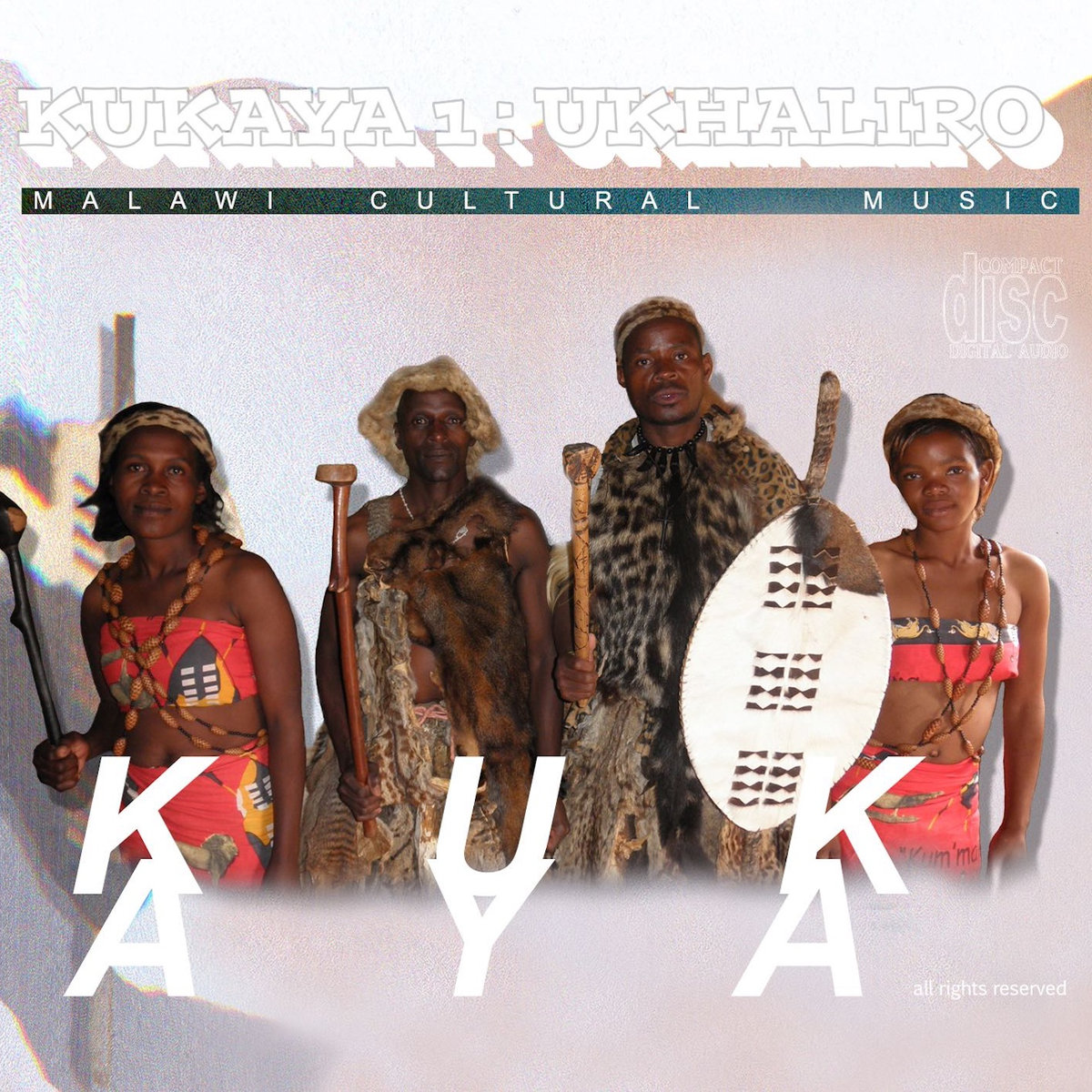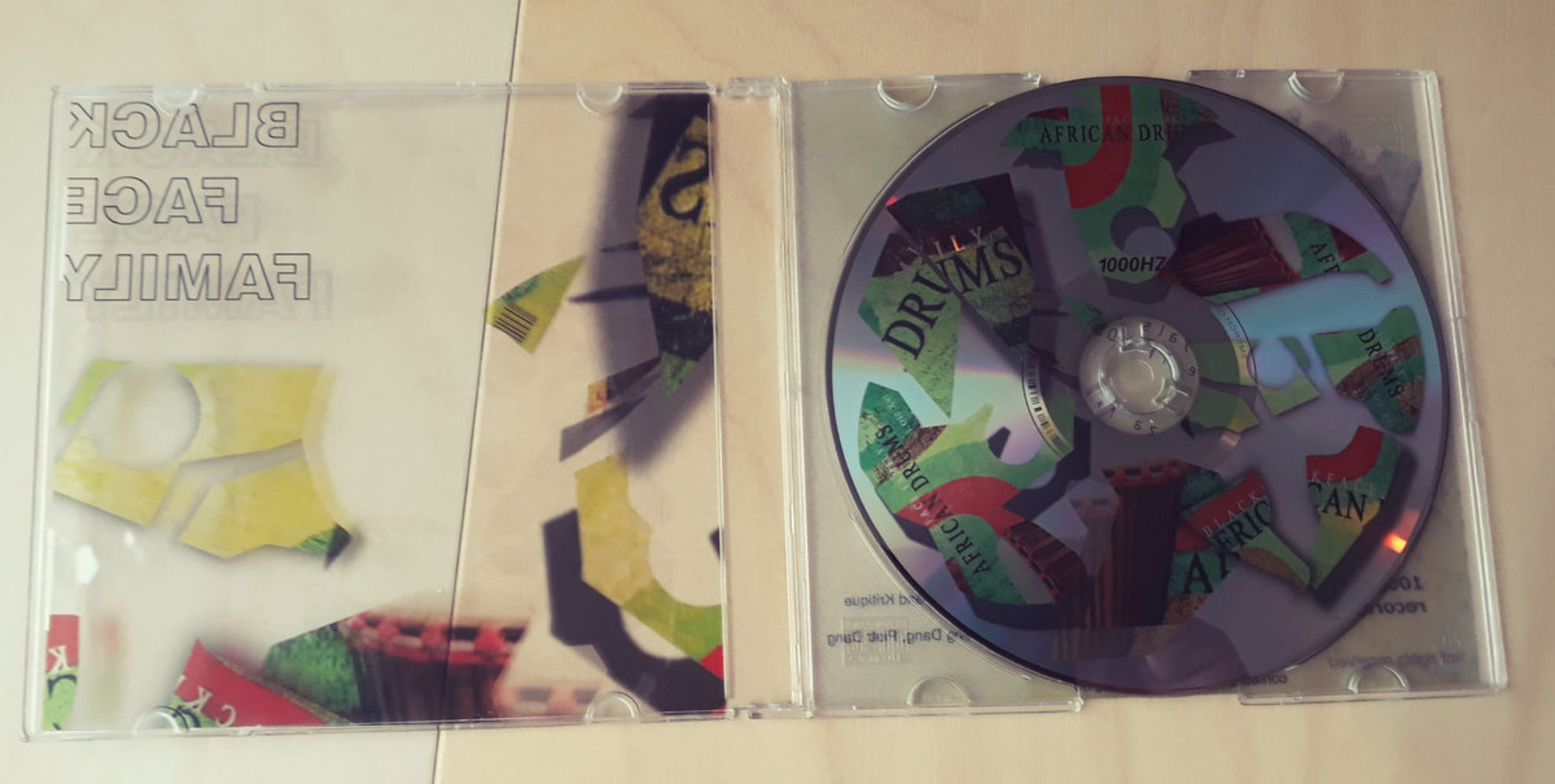As he was leaving Mzuzu, Piotr Cichocki was handed a CD by his friends, two brothers who go by JahFace and Twiggy. Cichocki had been in Malawi for months conducting ethnographic research on the connection between technology and religious life, “mostly manifested by the polarization between the ng'oma drum and the digital synthesizer.” He often hung out at the brothers' recording studio and they would take him out dancing. The CD "was somehow a gift and a comment related to my research," Cichocki says. "For example, JahFace raps about vimbuza, the local dance I focused on during my fieldwork.” The song on the CD, African Drums, was “so addictive,” that Cichocki decided to extend his formula from his 1000Hz label, which normally produces only traditional acoustic music, to release the full length by his friends' group, BlackFace Family.
BlackFace Family (BFF) comprises Twiggy, JahFace, their third brother Sparrow and their childhood friend Kritique, all from Mzuzu, Malawi. Until now, their songs have circulated as mp3s, ringing out from every barbershop and dance party across their city. They call their music style kukaning'inako, which means “from the Kaningina mountain” (the tallest mountain in Mzuzu), although the term belies their complex influences. Their style blends local music with a cosmopolitan concoction of hip-hop, reggae, dancehall and r&b. Fans of Afrobeats, hiplife, kwaito and reggaeton may recognize an infusion from these genres as well. Released Jan. 30, African Drums is their first album, a collection of some of their singles from the last three years.
The songs are upbeat and catchy. The album was curated and remastered by Cichocki, a Polish anthropologist and producer from 1000Hz Recordings. Cichocki affirms that the themes depict the “life of young people from Mzuzu” and “they are mostly about love and romance,” as in “Chigolo Muleke.” The songs “Manganje” or “Holiday” are simply about having a good time and dancing. There are also political messages of antiracism and unity as in “African Drums,” or depictions of poverty as in “Ghetto Gyals.”
The name of the title track may sound perfunctory at first glance, but “African Drums” can be considered a genuine and beautiful ode to African music. The message is about unifying African cultures, in the face of globalization, and often racism, by reminding people that African rhythms–both old and new–have influenced music-making and permeated dance floors around the world. It stands out to me as the "single" for the album as it is memorable, and although slightly down tempo, very danceable. The arrangement emphasizes the upbeats with a foregrounded electronic snare drum and a shaker. This contrasts with the sparse, staccato rhythm of the keys. The vocals interchange between rapping and singing in local languages and a melodic chorus sung in English. After listing several African countries, such as Malawi, Nigeria, Liberia and Tanzania, they say “African clubs dance to this.” They give a shout out to “Asian ladies, girls from Europe, even Americans” reminding listeners that the rhythms found in clubs across the world originate in Africa (and Malawi).
In contrast, “Old Xul” is an instrumental track–and happens to be another of my favorites on the album. Its stylistic and simple elements cleverly weave together to form a complex, syncopated interlocking pattern. It has a slow reggaeton beat, and synthesized bass, keys, drums, bell and horn. It is groovy and danceable, and will definitely be spinning at my next dance party. Even though the beats vary from one song to another, the album’s consistency lies in Twiggy's electronic-based production style. The instrumentation is minimal for electronic music, but when it all fits together, the patterns create undeniably catchy songs with multidimensional rhythms.
BFF has shared the stage with Malawi’s finest acts such as Tay Grin, Theo Thomson BlakJak, Piksy, Mabilinganya Empire, Don Daddaz Alliance, Blacka Fella, Ga Cypha, Excess, Pon G and Weapon, Stich Fray, Bucci and Aycee James. They have a drive for activism and have contributed to the campaigns of UNFPA as well as the Let’s Condomise Campaign (in 2013) and PSI (in 2015) to assist with HIV prevention.
Their positive ambitions are reflected in the actions of their exceedingly talented producer, Twiggy. He has been giving production lessons and believes in sharing his skills for the benefit of Malawi’s music industry: “I don’t want to die without living a legacy. I want Mzuzu city to go to the next level,” he told Entertainment Malawi. Twiggy’s music and BFF are a powerful example of the stunning talent coming out of Malawi and with the right luck they will help put Mzuzu music on the map.
Related Articles










